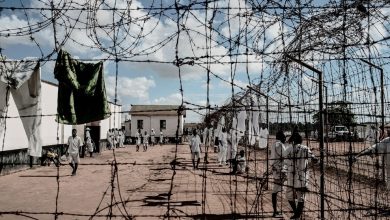Disaster in Lilongwe is all over cities
November 4, 2014
There is nothing more rewarding in our work as journalists than seeing our efforts leading to some action and in the course of doing so, save a life or alleviate the suffering of a long forgotten community.
In a quest to set the public agenda and get it to talk about things that matter in society, it gives utmost pleasure to any journalist when those entrusted with public office do something to reverse an ill that caused pain to an obscure community in some God forsaken corner of the country after an expose.
Yet all this glory still leaves the bitter aftertaste and the question that lingers on the mind is: Did the public officials have to wait until things headed this way?
A company in Lilongwe was dumping its pollutants into a river that local communities depend upon, thereby endangering their lives.
In its quest to make money, the company was ignoring the basic human decency of having feelings for another man.
The Department of Environmental Affairs closed Sunseed Oil Company Limited on Tuesday until it pays a fine of K1 million for endangering lives of communities around the area it operates from.
Its sister company, Central Poultry Limited, which was also accused of dumping dead and rotten chickens in surrounding villages, was also fined K1 million for this sadistic behaviour of putting money above human life.
By all standards, these are noble actions by a gover-nment department charged with the responsibility of guarding the environment and making sure that it is used well by those that use it for their economic activities.
But the question is: Where was the department all this time when these people were drinking polluted water full of dangerous chemicals?
Yet the disaster in Lilongwe is just a tip of the iceberg. The whole truth of the matter is that there is a lot of environment abuse by inconsiderate companies in our cities and towns that almost all the rivers that criss-cross them are polluted with chemicals and human waste from broken sewers.
All this rot is a symptom of what has become of Malawi. It is broken everywhere. Go to any government office and the sight that will meet you is of broken chairs and dirty walls and surro-undings.
Chances are high that outside you will find dirty broken down vehicles that are waiting for an auct-ioneer’s hammer for some simple spare part that one can get in a shop even in the vicinity.
Not that we have no laws. We have them in abundance and we all know who is supposed to enforce them.
If you ask the Department of Environment, for example, they will probably tell you that our environment protection laws are the best they could have ever been but because of low funding it is unable to protect, regulate and enforce the best practices available.
And this has been typically the song in all government departments as long as we can remember. They say they fail to do the job they are supposed to do on behalf of Malawians because Treasury does not fund them.
As for the environment, nothing is working. Everyone now complains to everybody how their home is damaged. There is no river in cities that is clean from pollution and the city councils or government department don’t want to do anything about it and they will give a myriad of excuses.
Nobody should be surprised that some villagers in Lilongwe were drinking chemicals or some dirty waste from a factory. It is typically what is happening all over Malawi and it seems there is nobody to stop it until the media throw the spotlight on it.
This country needs a revolution in thinking at leadership level to stop the rot that we see every day and everywhere. The disaster in Lilongwe is all over other cities.


